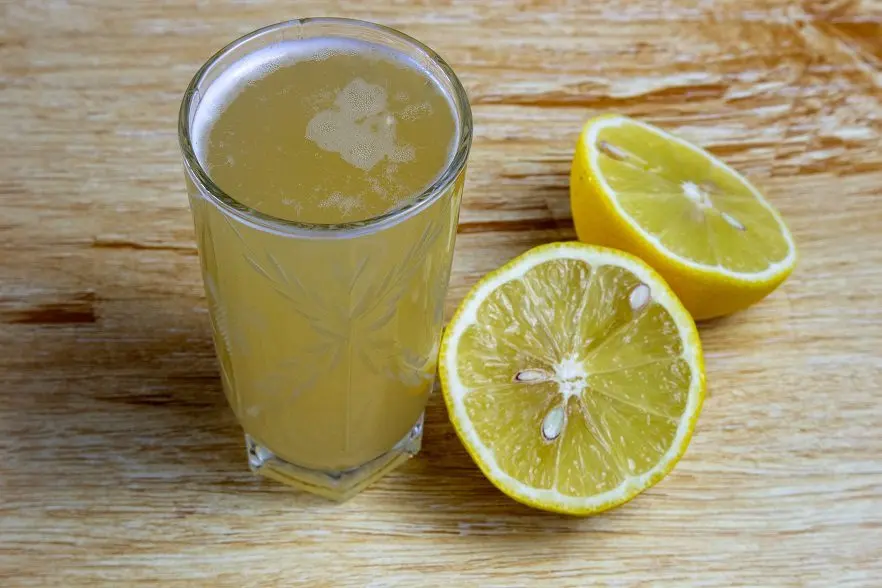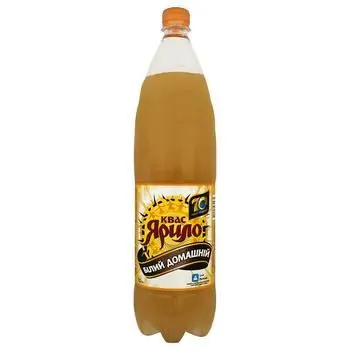Lemon kvass according to this recipe is highly carbonated with notes of lemonade and traditional bread kvass in aroma and taste. The entire cooking process will take no more than 3 days. For fermentation, you can use dry baker’s yeast, wine or sourdough. The cooking technology is slightly simpler than in other recipes.
Lemon kvass recipe
Ingredients:
- water – 2 liters;
- lemon – 2 pieces (medium);
- sugar – 250 g;
- dry baker’s yeast – 8 grams (or wine per 2,5 liters of must);
- raisins – 10-15 pieces (optional).
Lemons should be fragrant, and the zest should be free of rot and mold. Instead of dry yeast, you can use wine yeast or make sourdough, but then the fermentation time will increase from 3 to 5 days, and the kvass will not be so carbonated. The only drawback of baker’s yeast is that it gives a slight bready aftertaste. To offset this taste, a handful of raisins are added to the bottle.
Technology of preparation
1. Heat the water to 60-70 ° C, remove from the stove, add sugar and stir until the sugar is completely dissolved.
2. Rinse one lemon in hot water and wipe dry to remove the preservative from the surface. Remove the peel from the washed lemon – the upper yellow part of the peel without white bitter pulp. The easiest way is to grate the lemon on a fine grater.
3. Squeeze the juice from two lemons and add it to the pan with sugar syrup. Put the lemon zest in there too. Mix.
4. Ferment the yeast in a separate container – pour it into a glass or cup and pour warm water at 30-35 ° C. Mix, leave for 15 minutes.
5. Wait until the kvass wort cools down to 30-35 °C, then add diluted yeast and mix.
Attention! The temperature of the liquid must be no higher than 40 ° C, otherwise the yeast will die. If wine yeast is used, the temperature should be even lower – 30 °C.
6. Add 8-10 raisins to each bottle, then fill with future lemon kvass, without adding 3-5 cm to the neck, so that there is room for carbon dioxide.
7. Close the bottles tightly and immediately place for 3 days (in the case of wine yeast or sourdough – for 5 days) in a refrigerator or cellar with a temperature below 15-16 °C.
8. Once every 8-12 hours, check the gas pressure – the bottles should be solid, but not greatly increase in size. Relieve pressure if necessary to prevent bottles from exploding.
The shelf life of homemade lemon kvass with dry yeast is up to 10 days, with wine and sourdough kvass – up to 14 days. Kvass may contain 0,8-1,2% alcohol.











